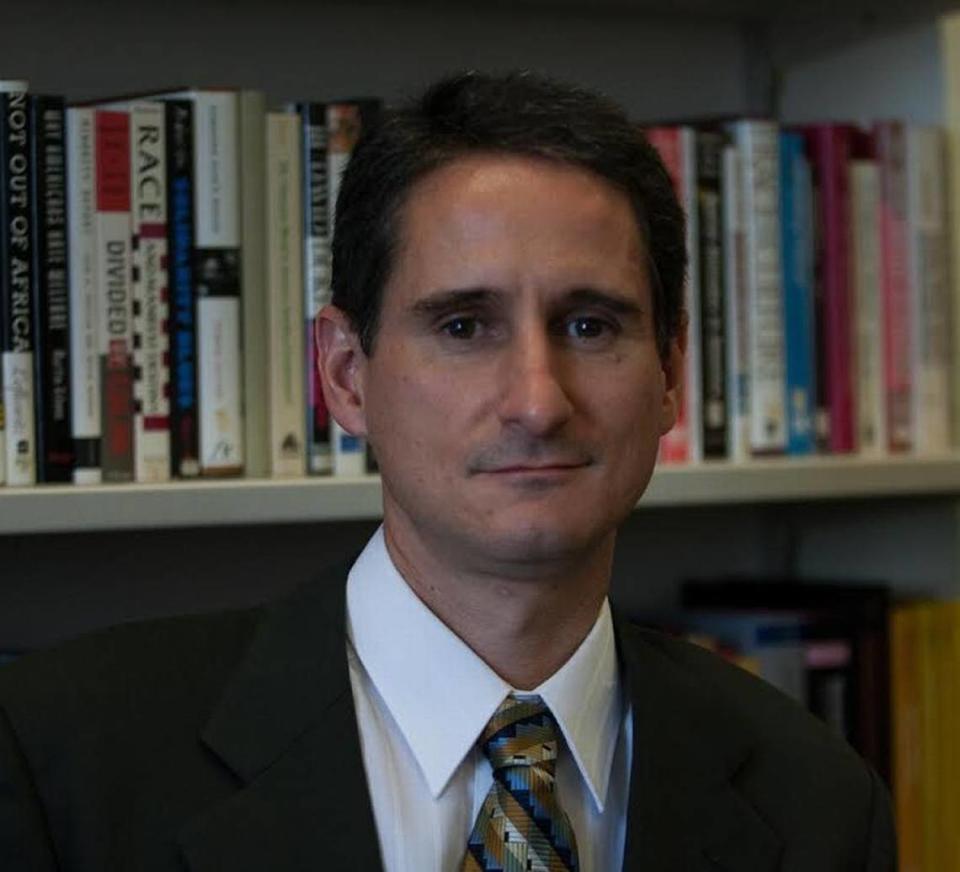How the terrorism trap caught leaders of elite universities | Opinion
When I left you, I was but the learner. Now I am the master.”
That line, spoken menacingly by Darth Vader, is one of the most memorable to audiences of Star Wars. But I expect it resonates best with educators — because one occupational hazard of being a teacher is that you’re fated to watch those you once taught go on to prominence (and salaries) you’ve never dreamed of achieving.
My career has been no exception. I’ve taught, mentored, or advised young people who later became bestselling authors, high-profile reporters and broadcasters, influential public officials and campaigners, professors at top universities, even education commissioner. But perhaps no one who’s ever sat in my classroom reached greater heights than Claudine Gay, President of Harvard University.
How a teacher feels about seeing the student become the master depends on personality. Because former students tend to stay frozen in my mind as the promising young person who showed up on the first day of class, I take great pleasure from learning they’re doing well — and I’m troubled when they’re struggling. So when Gay found herself in the hotseat at the start of the Israel-Hamas conflict, and even more so when she faced withering scrutiny in front of a congressional hearing this week, I paid special attention.
Unfortunately for Gay, so did a lot of other people. Gay’s administration stumbled multiple times while trying to find a politically acceptable response to terrorist attacks conducted by the Palestinian group Hamas against Israeli citizens. Gay’s first statement was so casual about the murderous assault that it attracted swift condemnation (including from her predecessor, Larry Summers).
Gay iterated through several more statements, ramping up her rhetoric until the Harvard Crimson could use terms like “forcefully” and “fiercely” to describe her attacks on antisemitism. Eventually, she seemed to get the message right.
Harvard’s activists made it harder for Gay to navigate the controversy. Dozens of “anti-colonial” student groups signed on to a statement blaming Israeli Jews for their own suffering. Faculty members lambasted Gay’s administration for tolerating this “hate speech.” But when Gay then distanced Harvard from the pro-Palestinian student groups, other faculty accused her of making targets out of the activists.
The good news for my former student and grad-school colleague is that Harvard’s stumbles eventually were matched by other colleges. A Cornell professor was caught on video saying the terrorism “exhilarated” him, while a California instructor seemed to call for violence against pro-Israel journalists. Wealthy donors have threatened to cut off the spigot, most notably at Pennsylvania.
Students in Berkeley, where I’ve spent part of my research sabbatical, periodically block locations such as the famous Sather Gate, chanting at each other angrily or lying down en masse pretending to be dead. One “anti-colonial” group interrupted a University of California football game.
But I couldn’t stop thinking about the Harvard controversy. The Claudine I knew was a lovely person, with a generous spirit — not the sort to be indifferent either to terrorism or students being harassed. And she’s trained in the science of politics. How could a leader I knew to be smart and kind find herself in the crosshairs?
Any statement Gay issued on behalf of her institution was bound to infuriate somebody, given that universities are filled with both pro-Palestinian activists and scholars fearful of the global rise of antisemitism. To me, the puzzle was: Why did Gay say anything?
The answer lies in how higher education has changed. Historically, institutions of higher education have been sites for fostering constructive disagreement. No way could any one person speak for a diverse community engaged in the messy business of searching for truth.
As educated professionals have become more uniform politically, though — creating the “Diploma Divide” — university leaders have gotten in the habit of issuing statements on behalf of the “community,” defining “our” values. They presume, like church leaders, to be able to speak for the congregation.
Presidents at elite universities were not allowed to remain silent about the attack on Israeli Jews because, having weighed in unnecessarily on so many world events, for them not to say anything about terrorism still spoke volumes. Presidents at Kentucky universities may soon find themselves on the horns of that same dilemma, as they’re pressured to condemn Hamas even though their institutions enroll students who’ve been flooded with pro-Palestinian (and, some would argue, antisemitic) rhetoric.
Nor can university presidents these days ignore what their faculty and students are saying. In the quest for social diversity, administrators have taken responsibility for the beliefs expressed by other community members. They do not stop at protecting individuals from harassment. They’ve gotten in the business of regulating expression, imposing speech codes or forcing employees to go through training to weed out “microaggressions” that might reveal “implicit biases.” University leaders look hypocritical now if they ignore blatant aggression expressing powerful prejudices.
So the transformation of American higher education set a trap for Gay and her peers, one that Hamas sprang on them. President Gay was forced to issue a statement almost guaranteed to land her in hot water, and in particular to take responsibility for activists celebrating a terrorist attack, when it would have been safer (if not wiser) to let public debate play itself out.
Perhaps educational leaders will learn something from the conflict now roiling elite universities, and go back to being teachers instead of preachers.

Stephen Voss is a political scientist specializing in elections and voting behavior at the University of Kentucky.

